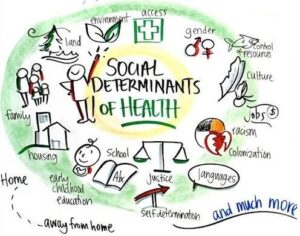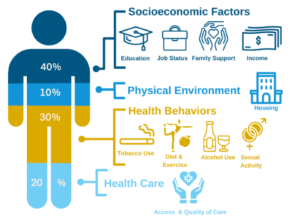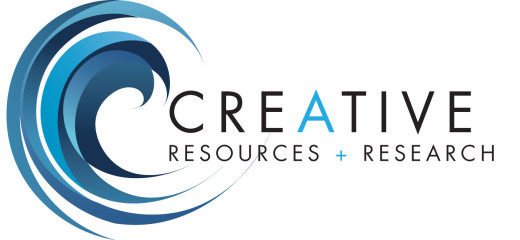How the Social Determinants of Health Can Bolster Your Grant Proposal
Understanding the social determinants of health (SDOH) is essential for demonstrating your project’s potential for creating meaningful impact. It’s a misconception that the social determinants of health are only about health and health initiatives. On the contrary, they apply to almost any initiative addressing social disparities. By including a comprehensive analysis of these determinants in your grant proposal, you can provide a more holistic approach to addressing the challenges of the population you serve. Here we will explore the SDOH, discuss how integrating them into your grant proposal can strengthen your case, and provide many resources to support your efforts.
Understanding the Social Determinants of Health
Social determinants of health are the conditions in which people are born, live, work, and age, and the wider set of forces and systems shaping the conditions of daily life. They encompass various interconnected factors that influence an individual’s health outcomes and well-being. The social determinants of health are organized into five domains:
- Economic Stability
- Education Access and Quality
- Healthcare Access and Quality
- Neighborhood and Built Environment
- Social and Community Context
Each domain includes a variety of subtopics. There are likely elements that will address the topic of your grant proposal.
The U.S. Department of Health and Human Services provides information, goals, and objectives for the social determinants of health on its Healthy People 2030 website.
Integrating Social Determinants into Your Grant Proposal
1. Background and Problem Statement
Begin your proposal by providing a detailed overview of the SDOH relevant to the issue you aim to address. Cite relevant statistics and research to underscore the importance of considering these factors in tackling health disparities.
2. Needs Assessment
Conduct a thorough needs assessment that explores the specific social determinants impacting the target population. Highlight the gaps in addressing these determinants and the subsequent effects on health outcomes. Take a look at a toolkit for assessing the social determinants of health. It contains resources that can be used for both needs assessment and evaluation purposes.
3. Goals and Objectives
Outline measurable goals and objectives that explicitly address the identified social determinants. Craft strategies that encompass both healthcare interventions and coordinated efforts involving various sectors, such as education, housing, employment, and community development.
4. Collaborative Approach
Demonstrate collaboration with key stakeholders and organizations with expertise or resources in addressing SDOH. Highlight partnerships that can drive sustainable change and maximize impact.
5. Cite federal, state, and local initiatives that align with and support your approach
For example, the White House recently released “The U.S. Playbook to Address Social Determinants of Health.” The Departments of Housing and Urban Development (HUD) and Health and Human Services (HHS) have reiterated the role of housing as a social determinant of health and its importance for advancing health equity. Aligning with initiatives like this can support the credibility of your program. Research the state and local initiatives that also support your project.
6. Evaluation and Measurement
Develop an evaluation plan that includes indicators capturing changes in SDOH over time. These indicators should link directly to the proposed interventions, providing evidence of progress and effectiveness. There are a variety of tools that can help you assess the social determinants of health. One is a toolkit provided by the Rural Health Information Hub (RFIhub).
7. Sustainability and Long-Term Impact
Emphasize how addressing SDOH can lead to long-term positive outcomes and contribute to sustainable improvements in health equity. Incorporate plans for ongoing monitoring, course correction, and scale-up beyond the grant period.
Conclusion
By explicitly incorporating an understanding of the social determinants of health into your grant proposal, you showcase a comprehensive and strategic approach to addressing health disparities. Integrating these determinants enriches your proposal by highlighting the underlying factors that influence health outcomes and providing a roadmap for sustainable impact.
Here are some additional resources:
1. World Health Organization (WHO) – Social Determinants of Health: The WHO offers extensive resources on SDOH, including reports, publications, and guidelines.
2. Centers for Disease Control and Prevention (CDC) – Social Determinants of Health: The CDC provides information, research, and resources focused on understanding and addressing social determinants of health.
3. Robert Wood Johnson Foundation (RWJF) – Social Determinants of Health: RWJF offers research, tools, and publications exploring social determinants of health and their impact on health equity.
Online Resources for Free Public Data
1. U.S. Census Bureau – Data.gov: Data.gov provides access to various datasets, including demographic and socioeconomic data that can help analyze SDOH.
2. World Bank – Open Data: The World Bank’s Open Data platform offers free access to a wealth of global development data, including health indicators, economic data, and social statistics.
3. United Nations Development Programme (UNDP) – Human Development Reports: The UNDP’s Human Development Reports provide comprehensive data on various dimensions of human development, including health, education, and income.
4. Centers for Disease Control and Prevention (CDC) – National Center for Health Statistics (NCHS): NCHS offers a wide range of health-related data, including vital statistics, health surveys, and population health indicators.
5. MIT Living Wage Calculator: The Living Wage Calculator helps individuals, communities, employers, and others estimate the local wage rate that a full-time worker requires to cover the costs of their family’s basic needs where they live.
Please note that some resources may require registration or provide limited access to certain datasets.
Do you have other resources that help you use the SDOH to support your grant proposals?
Contact us for more help on this topic!




